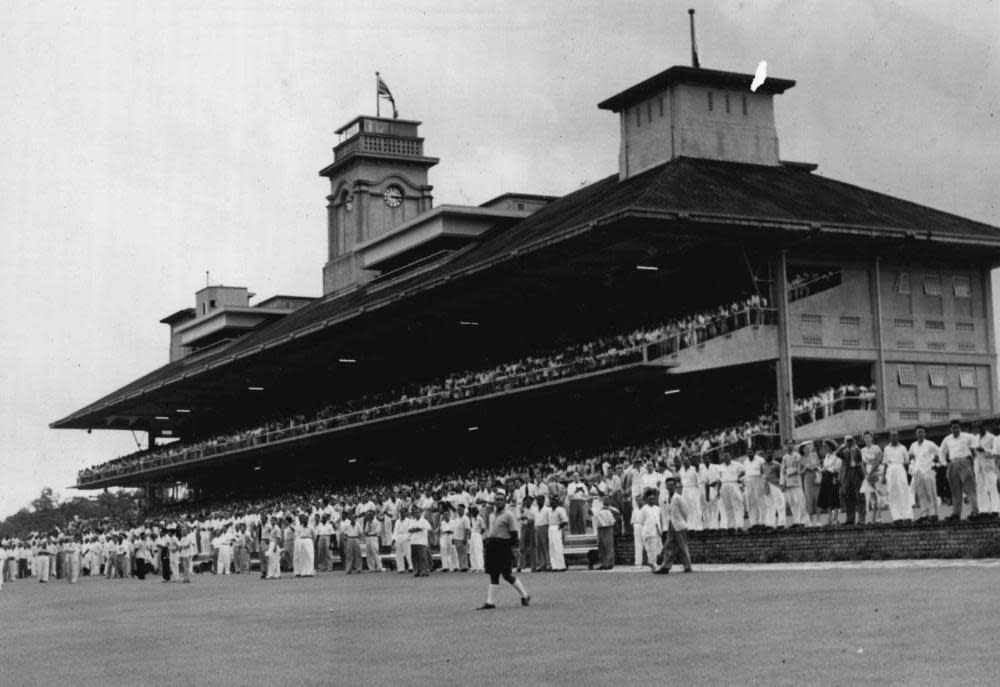Singapore bids farewell to horse racing to free up land for housing

More than 180 years of horse racing in Singapore will soon come to an end, as the “land scarce” city state closes its only race course to make space for public housing.
The chairman of the Singapore Turf Club, Niam Chiang Meng, said the club was saddened by the decision, but that it also understood the “land needs” of Singapore. The 120-hectare site was a valuable resource, he said, adding: “This transition will serve to optimise land use for the greater good of the local community and future generations.”
The final race meeting will take place on 5 October 2024, when the club holds its 100th Grand Singapore Gold Cup. The site will then be handed back to the government in 2027 for redevelopment.
Related: New York and Singapore top the list of world’s most expensive cities in 2022
The ministries of finance and national development said in a joint statement that Singapore is a city-state with limited land. “The government continually reviews its land use plans to meet today’s needs while ensuring there is sufficient land for future generations,” it said.
The number of attendees watching local horse racing had also declined over the years, the ministries’ statement added.
Singapore Turf Club was founded in 1842 by Scottish merchant William Henry Macleod Read and other horse racing fans, and was then known as the Singapore Sporting Club. As the sport grew in popularity, it moved to a larger venue, Bukit Timah in western Singapore, and later to its current site, Kranji, in north-western Singapore, which can seat 30,000 racegoers.
Over more than 180 years, the course has drawn in “royalty, celebrities, racing fans and the curious from around the world”, the club said in a statement.
Queen Elizabeth II, known for her love of horse racing, visited the club during a state visit in 1972, and an event was named after her. She visited a second time with Prince Philip in 2006.
The government said the site will be used for housing, including public housing, and that other potential uses, such as leisure and recreation, were also being considered.
The announcement of the club’s closure comes at a time when prices across Singapore’s property market are rising rapidly.
More than 80% of Singaporeans own their own homes due to a public housing system that sells government-built apartments directly to citizens at a subsidised price. However, demand for such apartments is high.
The cost of such properties – which can be resold after a minimum occupancy period – has risen by more than 30% over the past three years.
According to a recent report by the Urban Land Institute (ULI), costs in the private rental market in Singapore, which is dominated by foreigners, increased almost 30% last year, reaching a median monthly rent of US$2,600.
ULI’s report pointed to various factors for rising home and rental prices, including an increase in immigration to the city state, and a growing trend of young Singaporean professionals who prefer not to move away from their family home, a “relatively limited stock” of rental properties and delays to house construction during the pandemic.
The government has introduced cooling measures to ease the market and has said that up to 100,000 private and public homes are expected to be completed by 2025.

 Yahoo News
Yahoo News 
